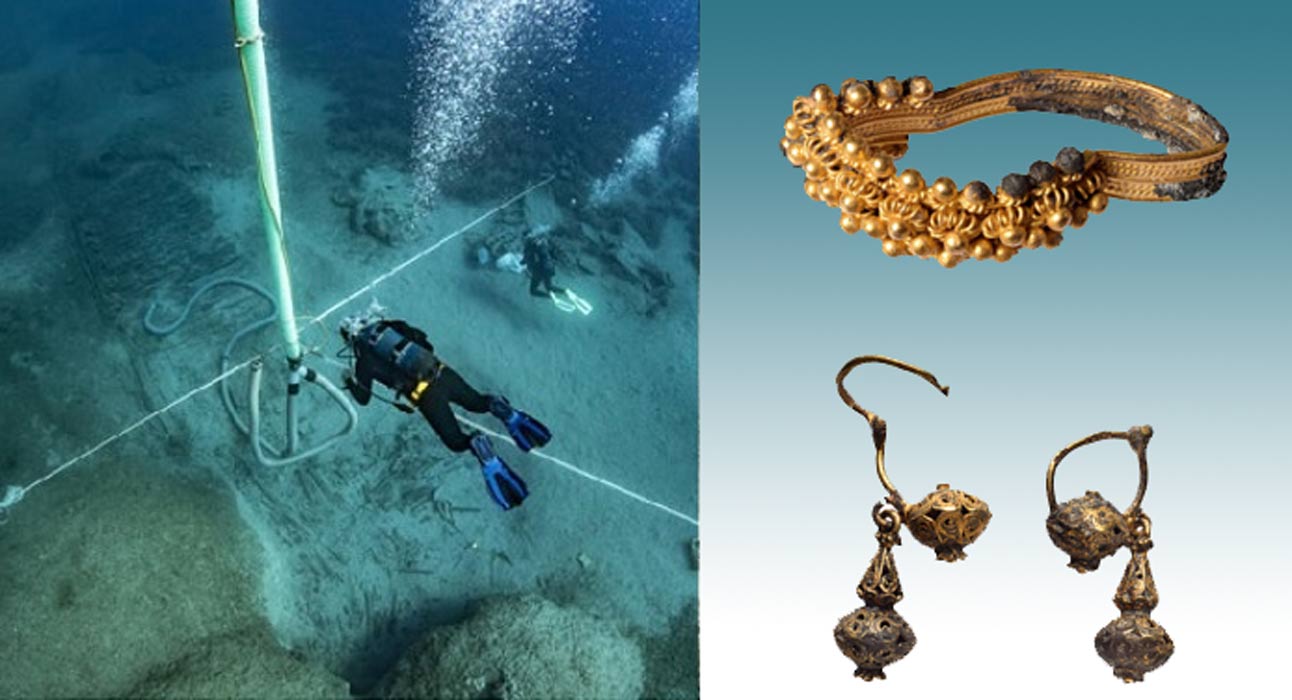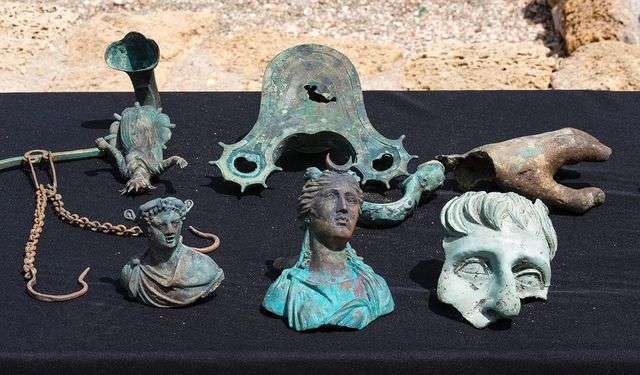Greek underwater divers and marine archaeologists have discovered hoards of ancient treasures onboard shipwrecks off the coast of Kasos Island. But now, a rare Roman shipwreck has been discovered, and the distant origins of its cargo are helping to paint a clearer picture of international trade in the ancient Mediterranean.

Kasos, or Kassos, is the southernmost Greek island in the Aegean Sea located between Crete and Karpathos on what is a historic maritime trading route linking the Middle East with the Aegean. In ancient times the island was inhabited by Minoan and Mycenaean cultures and according to Homer’s Iliad, “Kasos contributed ships toward the Trojan War .” Now, a Roman shipwreck has been discovered off the coast of Kasos Island and Greek authorities are saying it’s “filled with ancient treasures.”

Recovering Sunken Treasures from Roman Shipwreck
According to the news release by Greek Ministry of Culture and Sports , Kasos was “a crossroads of civilizations,” and an important navigation center from antiquity to recent years. It notes that, “remarkable archaeological finds have been made in shipwrecks located in the sea off the Greek island of Kasos.”
In 2019 Greek archaeologists discovered three shipwrecks dating from several different historical periods and scientists found evidence that pointed towards an ancient port facility. I wrote a news feature for Ancient Origins at the time quoting Greek Reporter who reported that “the oldest of the wrecks was a 2,300-year-old trading ship upon which the archaeologists located five stone anchors, fine tableware, and amphorae, which were large clay jars used to transport oils, wines, and food. Two other ships were also found which dated to the 1st century BC and the 8th-10th century AD.” The recent discoveries, according to the Greek Ministry, are “another trove of ancient treasures.”

An Expansive and Complex Subsea Archaeological Mission
The new findings were made by researchers working on the second underwater research mission by the Ephorate of Underwater Antiquities , a special peripheral service of the Hellenic Ministry of Culture and Sports , in collaboration with the Institute of Historical Research of the National Research Foundation . The Ephorate of Underwater Antiquities was founded in 1976 and its primary objective is the protection of the underwater antiquities discovered on ancient shipwrecks, settlements and harbors in the seas, lakes and rivers of Greece. In this project, twenty-three specialized scientists and technicians spent more than 200 hours beneath the waves, in more than 100 group dives.

The underwater archaeology project discovered several shipwrecks including one carrying amphorae that had been produced in the North Aegean in the Hellenistic era in the 1st century BC and another with a cargo of amphorae from ancient Mendi dated to the Classical era in the 5th century BC. The most “significant find,” according to a report in Greek City Times , was a “Roman-era shipwreck carrying amphorae containing oil constructed in Spain in the area of Guadalquivir (1st to 3rd century AD), as well as Africana I amphorae made at the ceramic workshops of Africa Proconsularis and specifically in the region of present-day Tunisia.”

Mapping Trade in the Ancient Mediterranean
Kasos served as an ancient maritime crossroads for many centuries and became a hub of trade and the exchange of exotic products. Putting these new discoveries into historical context, the archaeologists started in 2019 with a map of the Mediterranean, but now, that map is filled with shipwrecks. What’s more, that map is now crisscrossed with a matrix lines, for every amphorae that’s taken to the surface tells a complex story not only of what people on Kasosconsumed, but also of the distant origins of these products.
Combined with the 2019 discoveries of fine tableware and amphorae dating from the 1st century BC to some time between the the 8 th and 10 th century AD, this recent discovery of a Roman trading ship helps complete the emerging picture of Kasos as a center of long-distance trade and commerce. And this is why, even though no gold and silver is being discovered on the wreck, the Greek Ministry are calling this discovery of a Roman shipwreck “another trove of ancient treasures.”





